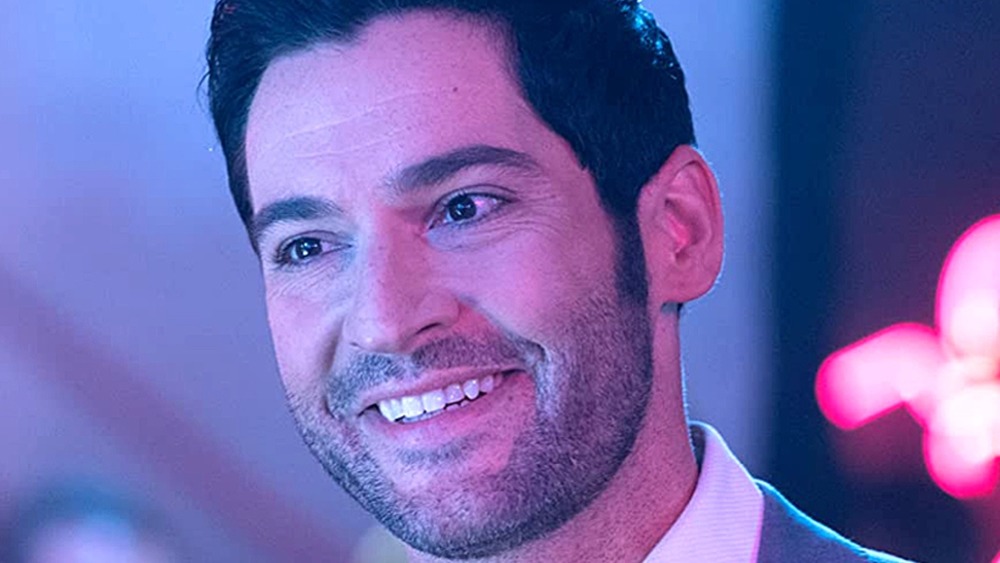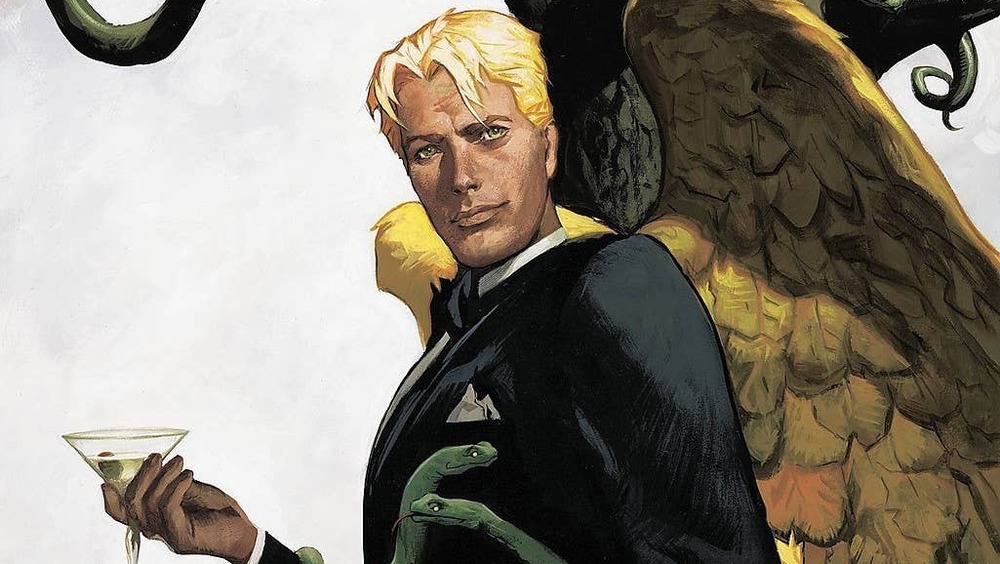The Inspiration For Lucifer Might Surprise You
If you thought the inspiration for Netflix's Lucifer series was strictly Biblical, then think again. The series, which first debuted on Fox in 2016, is actually inspired by Neil Gaiman's acclaimed Sandman comic book series, as well as the Lucifer spin-off series that followed in 1999. But the most interesting thing about the devilish show's comic book roots is that Lucifer Morningstar (Tom Ellis) is technically a DC comic book character.
That's right, Lucifer actually exists in the same space as characters like Constantine and Superman (although, he and Superman haven't actually met). Sandman and the Lucifer spin-off are both published by Vertigo, the adult arm of DC comics that focuses on telling more mature stories. And while he doesn't spend his days taunting the Justice League, the former ruler of Hell is still part of the larger DC multiverse.
In fact, Ellis made a special appearance in The CW's "Crisis on Infinite Earths" Arrowverse event in December 2019. During the third part of the crossover event, Lucifer gives John Constantine (Matt Ryan) from Legends of Tomorrow, as well as Mia Smoak (Katherine McNamara) and John Diggle (David Ramsey) from Arrow, a card that allows them to enter purgatory for a limited time. Ellis' appearance solidified Lucifer's place within the DC multiverse onscreen for the first time, while also reminding viewers of the character's rich comic book backstory.
The Lucifer TV show bares little resemblance to the comic book series on which it's based
When it came time to adapt Lucifer, Fox had to find a way to make the property friendly for network television viewers. The comics on which the show is based are richly plotted and full of deeply philosophical meditations on the nature of good and evil. Additionally, the series doesn't limit the character's adventures to Los Angeles. Instead, Lucifer moves through worlds on a mission from God to save all of humanity.
A story of that scope would work quite well on a streaming service or premium channel (in fact, Netflix is working on a Sandman adaptation), but it's not a natural fit for network TV. Lucifer executive producer Joe Henderson and his team knew they needed to streamline the concept into something a little bit less heady — and expensive — in order to make it work for Fox, which led to the procedural aspect of the bored Lucifer solving crimes alongside Detective Chloe Decker (Lauren German).
But despite the show's deviations from its source material, the essence of Lucifer's journey remained the same. "Our challenge, and what we tried to do is take those big ideas, that sort of raging against the cosmos, and ground them in the world of L.A. What's the metaphor we can steal from them? What's the idea?" Henderson explained to Deadline in 2016. "So for those of you who've read the comics, Lucifer isn't going to create a pocket universe in which he gets to find out what it's like to be God, but themes from that storyline inspired the television series nonetheless."
Ultimately, Lucifer the show is a very different beast than the comic books, but even with its streamlined plot, it has proven to be a thoughtful, funny, and often moving exploration of what it means to be human. In other words, even without the grand themes and big budget, this is one adaptation that works without being faithful to its surprising source material.

